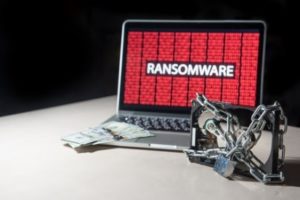Get in touch with us today to find out how can we help you.
 IT support experts in Houston have noted that ransomware has continued to grow and a big cyber threat all over the world. Today, everyone is familiar with ransomware, given that it is always making it to the headlines every other day. It encrypts crucial files and documents on the infected computers, and the owner is asked to pay ransom to be given the decryption key.
IT support experts in Houston have noted that ransomware has continued to grow and a big cyber threat all over the world. Today, everyone is familiar with ransomware, given that it is always making it to the headlines every other day. It encrypts crucial files and documents on the infected computers, and the owner is asked to pay ransom to be given the decryption key.
It is a fact that most companies end up paying the ransom but the exact figure cannot entirely be determined. This is because not many companies come out in the open to admit that they actually paid the ransom. Admitting could mean that they actually agree that their network was compromised and that their data recovery and security policies were inadequate.
Before deciding to pay or not to pay the ransom, you first need to consider your options. It all depends on the value of your data, the cost of business downtime, and the cost of recovering the data.
Why Would You Pay or Not Pay Ransomware?
IT support experts in Houston always advice business owners to have proper business continuity plans. A good business continuity plan includes data backup and recovery plans, as well as policies dictating on the steps to take in case of a disaster or a cyber attack. With a business continuity plan in place, you do not even need to discuss any subject related to ransomware; you are already sorted. Even if you were late instituting a business continuity plan, there is still hope and you do not need to rush paying ransomware. You can use downloadable decryption keys. The Crypto Sheriff Key will come in handy if you are not certain about the specific variant that was used to encrypt your files.
Paying ransomware is not an appropriate step to take. It is a risk that you take because you are not even sure that once you pay up you will be given the decryption key or whether you will be successful in recovering the data.
So, What Then If You Pay Ransomware?
The general expectation after paying ransom is getting the encryption key and recovering your data. However, logically, it is a risk you take. The possibility of getting back your data depends on the cybercriminal you are dealing with. Nevertheless, some ransomware actors do it professionally that they will actually help you get back your data once you pay them. Others, however, are amateurs in the game, and they end up giving corrupted encryption key.
What Then is the Best Option to Take?
Paying ransom should come up as a last resort. Try out every means you can before resulting in paying the ransom. However, consider the amount being demanded. If it is much less than what it could cost your business losing the data, then you can proceed to pay. Nevertheless, do not forget that it is a gamble. Even after paying, you do not have the guarantee that you will get it back.
To be on the safe side, seek the assistance of IT support providers in Houston, such as ICS, to safeguard your data. Contact us now for more insight into ransomware and other IT services.

ICS is a Texas-based 40-year-old technology company specializing in Managed IT, VoIP, Video Conferencing and Video Surveillance solutions for US and International businesses. ICS has over 4000 regional installations and specializes in multi-site businesses between 25 and 2500 employees. ICS’s customers enjoy the experience of ICS’s Total Care program which provides clients flat fee services with obsolescence and growth protection. Whether a customer elects to deploy their IT, Video Conferencing or VoIP in the cloud or on the customer’s premise, ICS can provide a full turn-key solution for our clients under one flat monthly fee.




